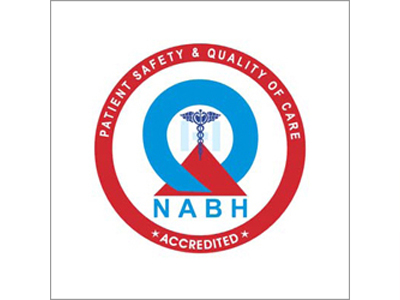The National eye donation fortnight is celebrated from August 25 – September 8 every year to educate people on corneal blindness, pledging eyes for donation and transplantation.
The human cornea is the transparent front part of the eye that covers the iris, pupil, and anterior chamber. This tiny watch glass like structure is truly our window to the world. The cornea gets cloudy and restricts the ability of the eye to see clearly due to infections of the eye, injury to the eye, nutritional deficiencies such as Vitamin A deficiency and birth-related diseases of the eye. In such cases the cornea becomes whitish and opaque. It needs to be replaced with a healthy donor cornea.
A healthy donor cornea donated by relatives of a deceased donor is useful only when retrieved within eight hours of death. It is retrieved by trained technicians or doctors associated with an eye bank. Eye banks have trained professionals who retrieve donated corneas, grade them for suitability of transplantation based on set quality parameters, and perform thorough quality checks. Donated corneas are then matched with suitable patients and sent to cornea surgeons for transplant.
Dr Aravind Roy, cornea & anterior segment specialist at the L V Prasad Eye Institute Kode Venkatadri Chowdary Campus in Vijayawada quoted a recent study that found the prevalence of moderate to severe visual impairment and blindness due to corneal diseases the highest in India amongst all Asian countries. He emphasised that improving awareness on eye donation and enhancing capacity building in eye banking is the way forward to address corneal blindness in the country. The LVPEI Eye Bank Network has harvested 1, 40,000 + corneas and distributed 85250 +, since its inception in 1989.
As part of awareness creation, a painting competition was help at the Kode Venkatadri Chowdary Campus in Vijayawada on August 25, 2024. About 300 students from 13 schools participated in the competition. The competition was held in two categories – Junior ( Class 1-5), Senior (Class 6-10). Each of the participants received a certificate of appreciation and a gift made by the visually impaired.
Sri Bode Prasad Garu, MLA - Penamaluru constituency was the guest of honour at the prize distribution event organized on September 3, 2024. NGO representatives, students, parents and teachers from the 13 participating schools were present at the event. He handed over the prizes to the winners in the painting competition and felicitated the NGOs who partnered with LVPEI during the eye donation fortnight in creating awareness and encouraging people to pledge their eyes. Sri Bode Prasad Garu encouraged everyone present to pledge their eyes, encourage family members to do the same and donate eyes of their deceased loved ones. Dr. Anasua Kapoor, Ocular Oncologist and Head of the Kode Venkatadri Chowdary (KVC) Campus also participated in the event.
To improve awareness on eye donation, social acceptability for eye donation and promote pledging of eyes for donation, let us debunk the myths.
Question 1: Who can donate their eyes?
ANYONE can donate their eyes regardless their age, gender or blood group. People who have used spectacles or contact lenses, had cataract or any other eye surgery done or even those who have low vision can donate their eyes. Patients with chronic diabetes or high blood pressure or heart or kidney disease can also donate their eyes.
Question 2: Who cannot donate their eyes?
Patients who have systemic infections like HIV/AIDS, Hepatitis B, Hepatitis C , Rabies, Tetanus, leukemia and sepsis cannot donate their eyes.
Question 3: When can the Cornea be procured after the death?
It is best to retrieve corneas at the earliest possible time after the demise of a person. Contact the nearest eye bank immediately after death. Only corneas retrieved within 8 hours after death are useful. (If body is refrigerated, they may be retrieved till upto 24 hours)
Question 4: Can eye donation give sight to all blind people?
Only people who have lost their sight due to corneal opacity or whitening will benefit from corneal transplant. People who have lost their sight due to glaucoma or retinal diseases will not benefit from corneal transplantation.
Myths about eye donation:
1) Eye donation causes disfigurement of face - No. after removal of the cornea, and eye lids are closed. It does not disfigure the face
2) Body taken to hospital after death for eye donation - Eye donation is performed at home within 20-30 minutes. Donating eyes will not delay funeral arrangements
3) Human cornea is sold and bought - It is illegal to sell human organs including cornea. No retrieval fee is charged for the collection of corneas
4) Corneas can be retrieved only from the people who have pledged their eyes during their lifetime - It is best to pledge your eyes for donation and inform family members and seek their cooperation in donating your eyes after demise. Consent of the family members is a must.
Family members can also donate the eyes of their deceased loved ones by reaching out to an eye bank, even if the deceased has not pledged their eyes during their lifetime.
You may pledge your eyes Here
Facilitate Ngos


